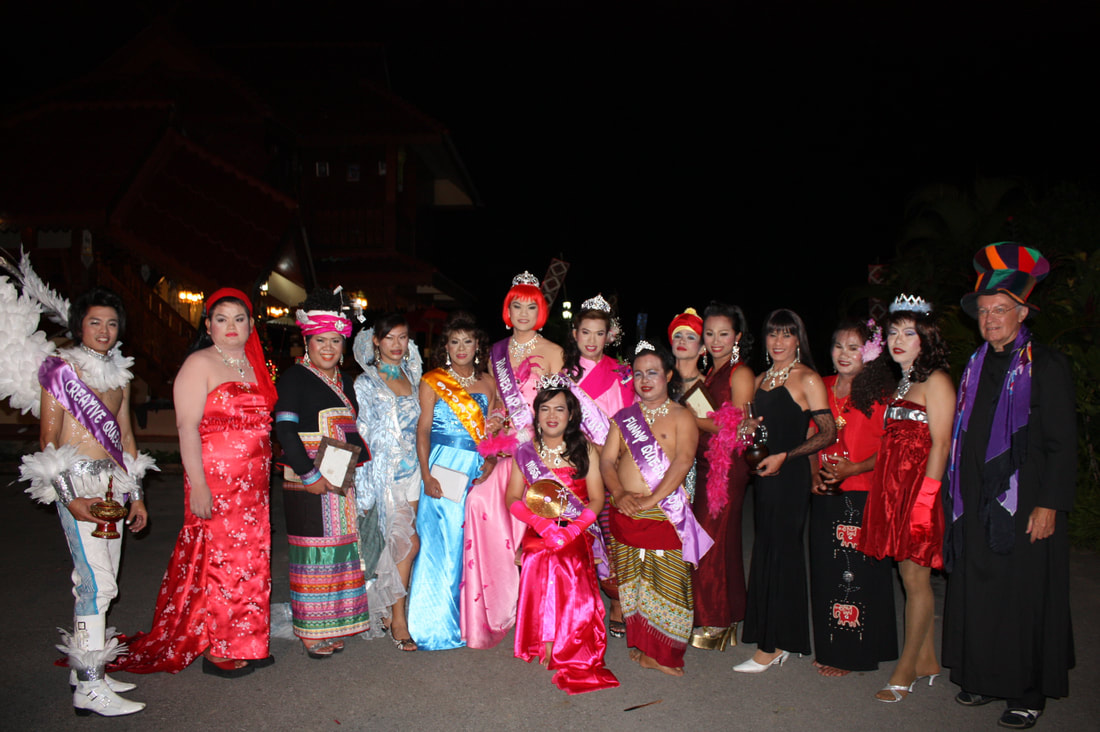|
“Are you unique? Are you special?” the teacher asked his class. They thought they were. “Yes, yes,” they chorused. “Of course we are!” How absurd to question our individuality. It’s a basic human right isn’t it? It’s a basic assumption, anyway.
We who are LGBTIQs will probably be among the first to insist that each and every human being is unique. It’s the basis for our argument that we are entitled to equal treatment with heterosexuals and celibates. “I don’t need to be like you.” “I am who I am,” or “I am who God made me,” or “I am gay because my karmic destiny led to this.” We need this rationale. “No,” the professor responded, “you are not unique.” His argument was that overwhelmingly we are the same. Biologically, physically, psychologically we are far more alike than we are different. Our range of head sizes is hardly more than an inch different. Our number of any physical organs, their size and function is normally the same. Our life expectancy, the environment in which we most easily thrive, or the way we will succumb to viruses, in all these ways we are alike. Where did the idea come from, then, that we are discrete, diverse and different? Like many of our most passionately held persuasions the concept is not particularly old. Throughout most of human history individual rights were unheard of. Rights, rules and regulations were not structured until the second half of recorded history and the individual was not singled out until much later. In the West it was the Enlightenment, just 500 years ago, that placed special emphasis on the individual. In the East it was the coming of the West that initiated the idea, still not very widespread, but growing. The teacher’s point, however, was that the major beneficiaries of the idea of individuality are the manufacturers of products. It is they who profit from our desire for wide choices of hair styles, foodstuffs, and fabrics. How many types of sneakers does the human race need? He was convinced that this was all part of a vast conspiracy with potentially disastrous environmental consequences. It’s a thought-provoking idea, and we can see how it applies to the gay side of society. Here in Thailand there are now a couple of gay oriented lifestyle magazines and several more aimed at “metrosexuals”. From them we are meant to learn how our trend leaders dress, what they eat and where they go to express their natural desires, so we can be more like them. But wait a minute! These guys are not like us…not most of us. They are all physical hunks, under 35, with perfect complexions (not counting tattoos), and extensive expendable funds. They are not us, and they know it. They are disdainful in their expressions, attitudes and actions. They suppose they are who we are supposed to be. And we suppose so, too, if we aren’t careful. They are our trend-setters and role models, and if we are too old, too fat, too dark, too anything – we need products to compensate. We need ointments, clothing, services and activities to make up for our sorry deficiencies. Obviously, this is a marketing ploy and it is used to manipulate various sectors of the marketplace, not just us. The teacher was right about that. Still, I am not yet convinced that the thing to do is to protest against the place of the individual and advocate the sovereignty of the group. We’ve been there and suffered from it. The tyranny of the majority is sometimes against US. So, how do we sort this out? We need to affirm our membership in the human family. That could be our metaphor. We are all part of this family. But we are not identical, nor clones. Although largely alike we are not entirely alike. Our DNA is different, our fingerprints are unique and our personalities are diverse. We are mostly like everyone and even more like kinfolk, yet we are not like anyone else except in certain apparently random aspects not of our own choosing. On the other hand, if we are to be gay we need to set ourselves apart, express our individuality, dare to be proud, and find our place in the world. It is particularly urgent for us gay men to defend our niche in homogenous humanity. There are ways in which each of us is more like certain groups of total strangers and distant foreigners than we may be like our next of kin or closest ancestors. That, in fact, affirms our membership in the whole human family, and it is what moderates our identity as individualists. Keep your wits about you, as my grandmother used to say. Don’t be shoved into behaviors that are wrong or optional, which are not of your own choosing. You can’t buy your way into significance. Being gay has no connection to brands of underwear. And styles of briefs have no impact on happiness. Or most of the time it does not matter. [This essay was based on an initial idea supplied by Louise Jett and written in 2012 for OUT in Thailand magazine edited and published by James Barnes.] See also: www.kendobson.asia/blog/spectrum
0 Comments
Leave a Reply. |
AuthorRev. Dr. Kenneth Dobson posts his weekly reflections on this blog. Archives
March 2024
Categories |
| Ken Dobson's Queer Ruminations from Thailand |
|

 RSS Feed
RSS Feed
